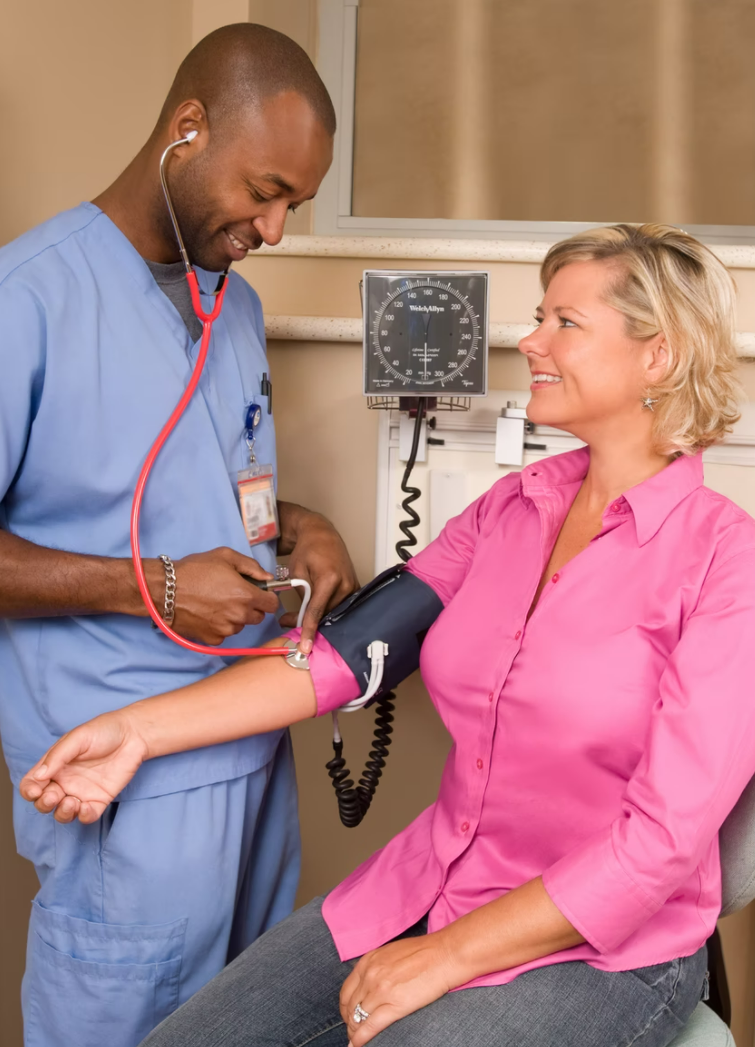
The Best Ways to Prepare for Your First Nursing Clinical
Few things are so dreaded in the life of a nursing student as the first clinical. Everything you’ve learned in class now has a practical application—on living, breathing humans. Humans you will be expected to care for.
The prospect is daunting for many people. Perhaps it even should be. But there is an important distinction between being reasonably anxious, and overwhelmingly afraid. In this article, we explore how to get ready for your first clinical so that you can have a successful first day of nursing school clinicals.
Sleep Well
Nurses aren’t exactly known for their good sleeping habits. Twelve hours shifts, some of which happen at night tend to dampen one’s chances of getting the doctor-recommended eight hours. Elusive though good sleep may be to the working nurse, it remains an option to you, the student.
Go to bed early the night before your first clinical, and try to factor in variables, like nerves. It can be difficult to fall asleep the night before a significant life event. Figure out a way to do it anyway.
Eat Right
Good nutrition is also an important step in surviving your first clinical. Eat a healthy, filling dinner the night before. On the morning of your clinical, it is equally important to eat a well-balanced breakfast. Try to come up with a menu that focuses on providing a good energy boost.
Fats are actually one of the most dependable sources of short-term energy. You can work them into your morning routine with healthy meals like yogurt and fruit.
Come Correct with Supplies
Undoubtedly, your school has provided you with a list of supplies you will need for your first clinical. It’s a good idea to check off that list the night before, making sure you will know where to find everything when it comes time to head out the door the next morning.
Many people make the choice to label their supplies. This may be a good idea—many of your peers will have virtually identical gear.
Also consider the merits of additional items that, while not necessary, could make your job easier. For example, a high-quality, durable watch can help monitor a patient’s heart rate. Just make sure that you are aware of everything you ring to the hospital so you can return home with it at the end of the day.
Be Prepared to Ask for Help
Do you want to hear a secret? You aren’t the first future nurse to do clinicals. You aren’t the second either. Everyone at the hospital will be well aware of why you are there and what you are doing. The nurses are likely to be particularly sympathetic, remembering their initial experiences with the profession.
Questions and uncertainty are expected. And, when it comes to patient care, it’s always better to ask your question and do something right than it is to remain silent and make mistakes. Don’t be shy. No one there expects you to know everything.
Review Your Coursework
The night before your first clinical is a good time to scan over your coursework. This isn’t a cram session. It’s a refresher. You know what you need to know. Doing a review cements it in your mind, and it can also help you build confidence.
Doing a review of all that you’ve learned will remind you that you have the information you need to have a successful clinical already in your head.
Take a Breath
Finally, take a moment to calm down. Clinicals are scary. For everyone. And yet, anxious or not, you are ready for the task ahead. The night before a clinical is a good time to take a quiet, peaceful moment and just reflect on the reality of what you are preparing to do.
- You are qualified to do this. You have completed the classwork up until this point. You know your stuff.
- You will have resources on hand to make sure things go as smoothly as possible.
- It’s normal to be afraid. All your classmates are too.
- Things will go wrong. You’re entering a situation filled with variables and uncertainty, and you’re doing it with no experience at all. Things will go wrong. When they do, you’ll receive help, and learn from your mistakes.
Once you accept the challenges of your first nursing clinical, can begin to appreciate the beauty of it. This is your first concrete step into your desired line of work. All the studying you have done culminates in the moments ahead: taking care of people and making a significant difference in their lives.
It will be hard. You can do it anyway.

With a Bachelor’s in Health Science along with an MBA, Sarah Daren has a wealth of knowledge within both the health and business sectors. Sarah has been a consultant for a number of startup businesses, most prominently in the wellness industry and health education. She implements her health knowledge into every aspect of her life with a focus on making America a healthier and safer place for future generations to come.
